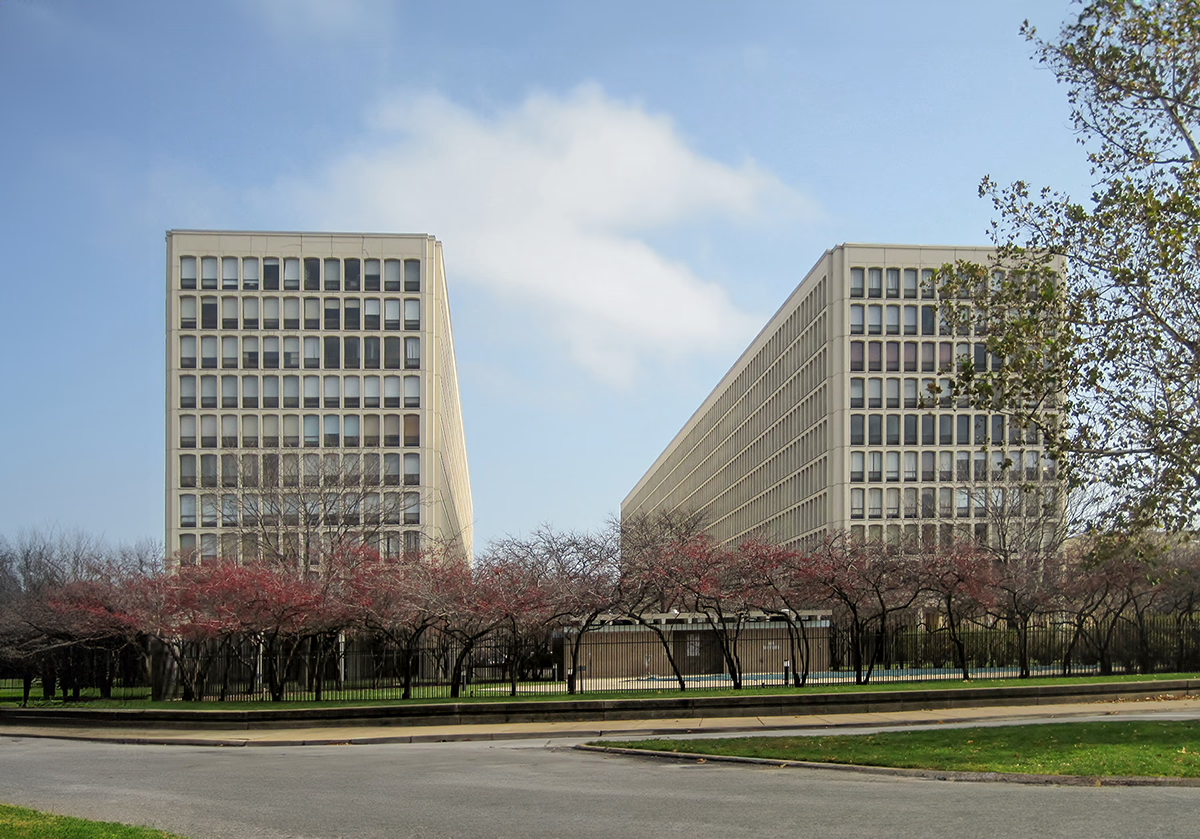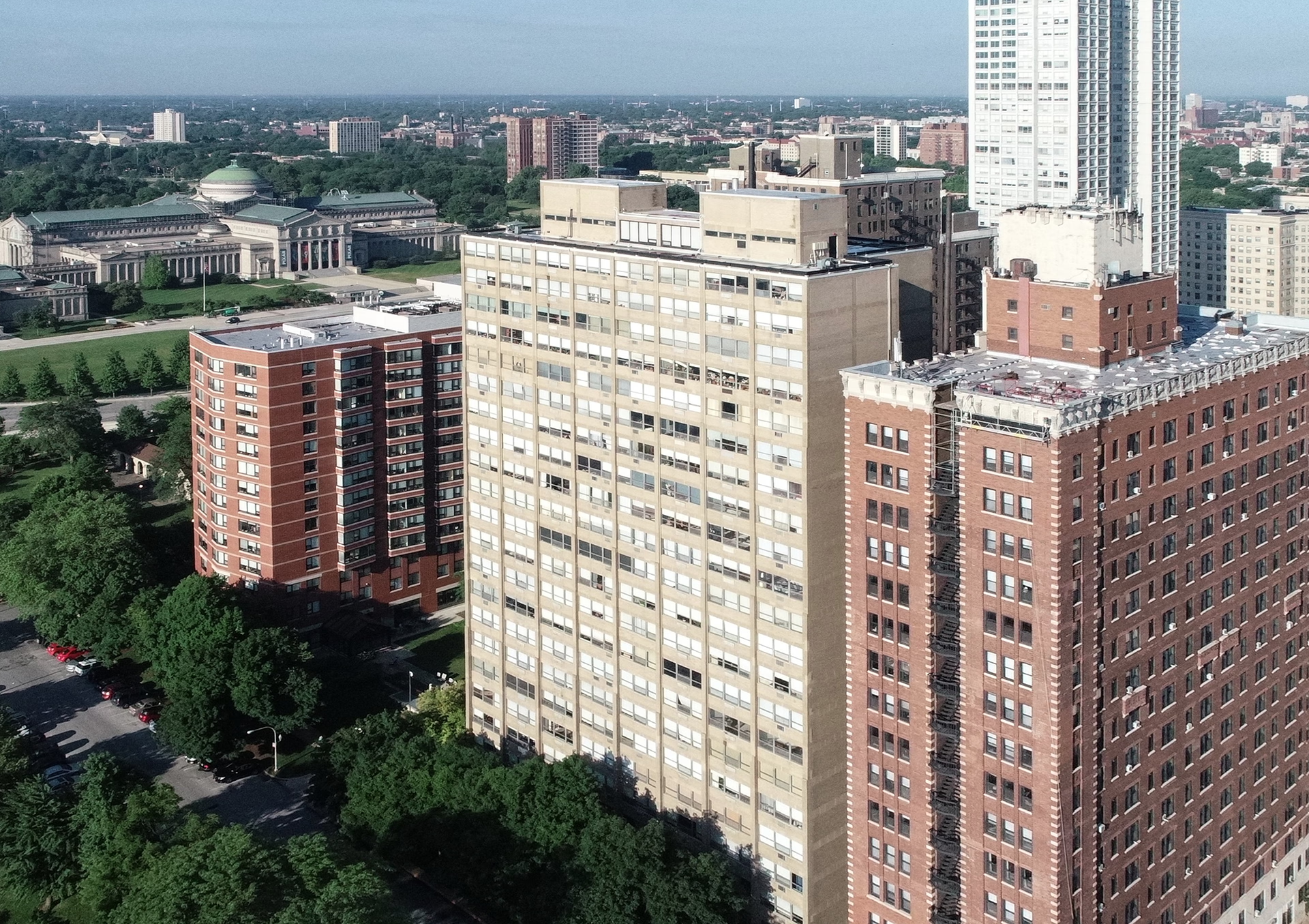University Apartments vs Promontory Apartments


Comparing the University Apartments and the Promontory Apartments is interesting because they both rise in Chicago, IL, yet they were conceived by two different design teams, I. M. Pei and Mies van der Rohe, and were completed at different points in time. They were finished more than a decade apart.
This contrast within the same city allows us to see how different creative minds interpreted the evolving needs of Chicago across time.
Let's take a closer look!
Height & Size
These two towers present an interesting contrast in their proportions. The University Apartments rises higher at 308ft (94m), while the Promontory Apartments reaches 218ft (66.5m). However, the Promontory Apartments accommodates more floors with 22 levels above ground, compared to 10 floors in the University Apartments.
This suggests different approaches to interior space design. The University Apartments has an average floor-to-floor height of approximately 9.4m, while the Promontory Apartments has more compact floors averaging around 3m each. The taller building's more generous floor heights might indicate grander interior spaces, higher ceilings, or different programmatic requirements.
These different proportions likely reflect the specific needs each building was designed to serve, whether driven by zoning regulations, client requirements, or the intended use of the spaces within. The contrast shows how architects can achieve different spatial experiences even when working with similar overall building scales.
Architectural Style
Both the University Apartments and the Promontory Apartments were designed in line with the aesthetic conventions of the International Style style.
At the time, this style was at the height of its popularity. So both I. M. Pei and Mies van der Rohe followed what was in many ways expected of them, producing designs that fit comfortably within contemporary architectural norms, rather than breaking with convention.
Uses
Both the University Apartments and the Promontory Apartments were designed to serve as residential towers, and that has remained their main use since their completion, serving similar roles in the urban fabric.
In terms of capacity, the University Apartments offers 540 apartments, while the Promontory Apartments provides 122 units.
The University Apartments also provides 220 parking spaces.
Structure & Facade
Both the University Apartments and the Promontory Apartments rely on a Frame structural system.
A frame structure uses a grid of columns and beams to carry the building's loads. This frees the walls from structural duties, allowing for flexible floor plans and larger windows.
They also employ the same type of facade, a Window Wall facade.
A window wall system is installed between floor slabs. It is simpler and faster to build than curtain walls, but exposes slab edges and requires careful detailing to avoid thermal bridges.
| University Apartments | Promontory Apartments | |
|---|---|---|
| I. M. Pei | Architect | Mies van der Rohe |
| 1959 | Construction Started | 1947 |
| 1961 | Year Completed | 1949 |
| International Style | Architectural Style | International Style |
| Residential | Current Use | Residential |
| 10 | Floors Above Ground | 22 |
| 1 | Floors Below Ground | 1 |
| 94 m | Height (m) | 66.5 m |
| 540 | Residential Units | 122 |
| Frame | Structure Type | Frame |
| Concrete | Vertical Structure Material | Concrete |
| Concrete | Horizontal Structure Material | Concrete |
| Yes | Facade Structural? | No |
| Glass, Concrete | Main Facade Material | Brick |
| August Komendant | Structural Engineer | Frank Kornacker |
| IL | State | IL |
| Chicago | City | Chicago |
| 1400 1451 E.55th Street | Address | 5530–5532 South Shore Dr. |